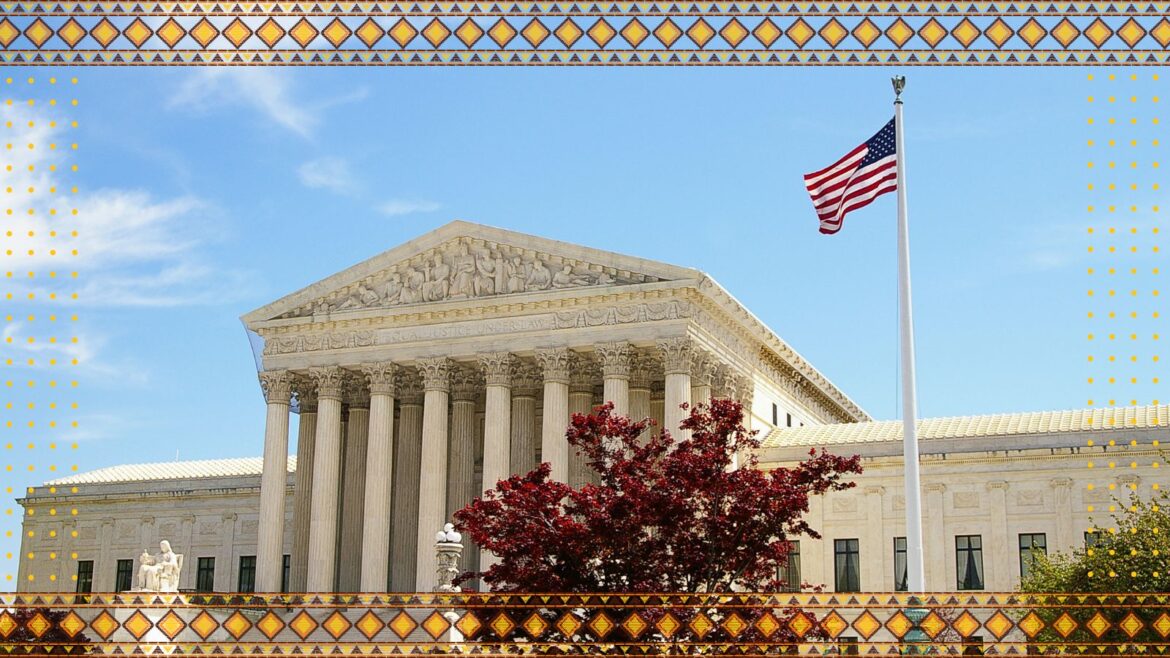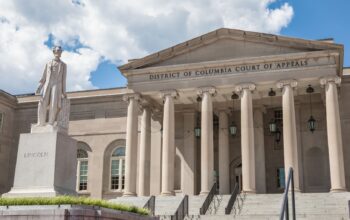by Stacy M. Brown
As she watched her conservative majority colleagues on the high court issue the death knell to affirmative action Thursday, Supreme Court Justice Ketanji Brown Jackson wrote another masterpiece to express her dissent.
Jackson’s disapproval could easily be summed up in a single and precise sentence: “Our country has never been colorblind.”
“The best that can be said of the majority’s perspective is that it proceeds (ostrich-like) from the hope that preventing consideration of race will end racism,” Jackson wrote in blasting the six-member majority.
“But if that is its motivation, the majority proceeds in vain. If the colleges of this country are required to ignore a thing that matters, it will not just go away. It will take longer for racism to leave us.”
In the majority ruling, the conservative justices declared that the admissions policies of Harvard University and the University of North Carolina, which consider race a factor, were unconstitutional.
Students for Fair Admissions had presented two cases for consideration against Harvard and UNC, representing private and public universities.
They argued that the practice violated the equal protection clause of the 14th Amendment and put white and Asian-American applicants at a disadvantage.
Harvard and UNC maintained that affirmative action should be upheld, contending that their admissions policies align with previous court decisions.
They argued that considering race ensures a diverse student body. They denied any discrimination in their practices.
However, the Court ruled that affirmative action violates the Equal Protection Clause of the 14th Amendment.
The justices stated that the universities’ policies do not conform to the limited exceptions for equal rights without regard to race, color, or nationality.
The justices determined that the universities failed to provide sufficient justification for using race in admissions.
Further, they claimed that affirmative action programs do not comply with the Equal Protection Clause’s requirement that race not be used negatively or as a stereotype.
The Court noted that affirmative action resulted in a lower acceptance rate for Asian American applicants at Harvard.
The Court further stated that basing admissions on race leads to stereotyping and assumes that individuals of a particular race think alike, which it said it found offensive and demeaning.
The justices did acknowledge that race can still be considered if it is directly tied to an applicant’s character or unique abilities that they can contribute to the university.
Chief Justice John Roberts, in the majority opinion, emphasized that students should be evaluated based on their experiences rather than their race.
He criticized universities that he said had wrongly prioritized skin color, stating that America’s constitutional history does not support such a choice.
Jackson lambasted that opinion.
“With let-them-eat-cake obliviousness, today, the majority pulls the ripcord and announces, ‘colorblindness for all’ by legal fiat,” Jackson forcefully dissented.
“But deeming race irrelevant in law does not make it so in life. And having so detached itself from this country’s actual past and present experiences, the Court has now been lured into interfering with the crucial work that UNC and other institutions of higher learning are doing to solve America’s real-world problems,” Jackson asserted.
“No one benefits from ignorance. Race matters in the lived experience of Americans, even if legal barriers are gone.”
By gutting equitable access to higher education, the Court ruled against Black and Brown students’ access to the American Dream, said Jessica Giles, Executive Director of DFER DC.
“This ruling erases decades of progress – a particularly concerning reality given our higher-education system continues to uphold systemic, racist barriers to entry that keep doors of opportunity closed on Black and Brown students,” Giles stated.
“Now more than ever, we must upend the college admission process to ensure it is optimized for racial equity, starting by abolishing legacy preference – a textbook example of systemic racism. In the absence of race-conscious admissions policies, we strongly urge D.C. elected officials to pass policies that ensure our Black and Brown students complete postsecondary education and can obtain economic prosperity.”
Sharon R. Pinder, president and CEO of the Capital Region Minority Supplier Development Council, serving Maryland, the District of Columbia, and Northern Virginia, criticized the Court in an op-ed.
“Across the country, we see systematic attacks on programs established to support affirmative action and the inclusion of minorities in education, business, and other aspects of American life,” Pinder insisted.
“From what we are witnessing, it has gone beyond philosophical conversations and debates to hardcore legal action.”
In a recent interview with the Washington Business Journal, Shannon Gundy, the director of undergraduate admission at the University of Maryland (UMD), confirmed that the university currently incorporates race in its admissions process.
Gundy emphasized that achieving a diverse student body would only be possible by considering race, adding that the university is committed to maintaining a diverse community, even in the face of potential changes to affirmative action laws.
UMD President Darryll Pines echoed that sentiment.
“We believe it is at the intersection of diversity and excellence where innovation is born, where ideas are nurtured, and where we begin to solve the grand challenges of our time,” Pines said.
“While the laws that govern the way we achieve that diversity may change, our commitment will not waver.”
Meanwhile, Baltimore’s Johns Hopkins University supported existing affirmative action policies.
In a statement, Hopkins emphasized the importance of considering racial and ethnic backgrounds as one factor among many in an individualized and holistic review of applicants.
Both universities said they recognized the significance of diversity in their student bodies.
Officials maintained that a diverse community fosters innovation, nurtures ideas, and enables tackling significant global challenges.
UMD and Johns Hopkins University declared they would remain resolute in their commitment to promoting diversity and excellence in their admissions processes.
“It is important that individuals who seek admission to the university be allowed to include in their application materials information regarding their racial and ethnic backgrounds, as one factor of many in an individualized and holistic review of their application,” Hopkins said in a statement.
Source: Published without changes from Washington Informer Newspaper




